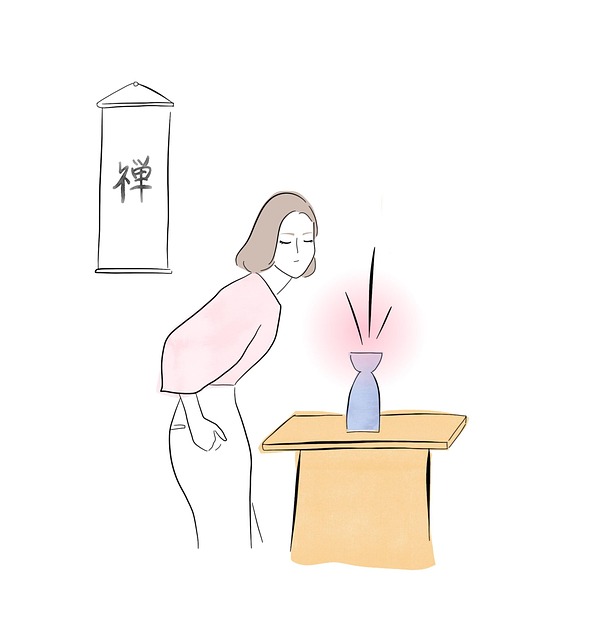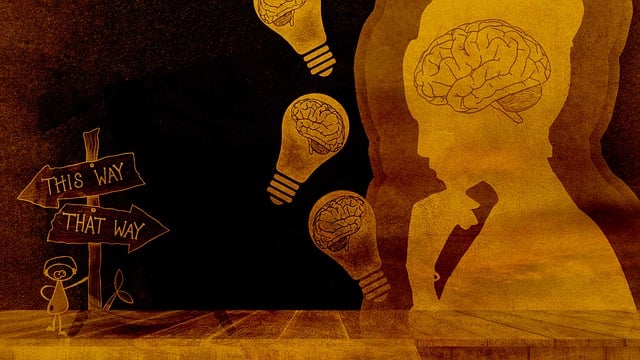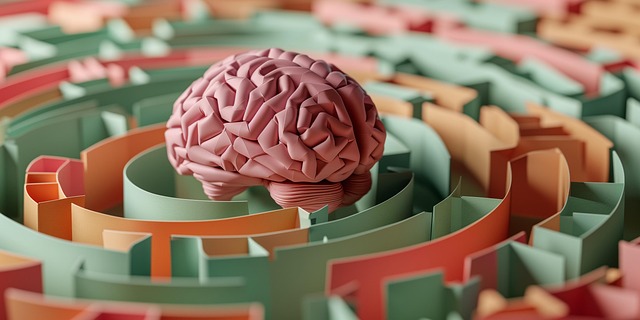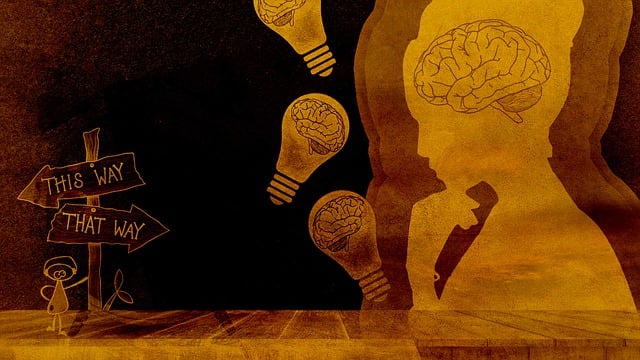Englewood Bipolar Disorder Therapy offers a holistic approach integrating mindfulness meditation, cultural sensitivity, and trauma support for effective condition management. This ancient practice helps individuals regulate emotions and reduce symptoms by focusing on the present moment without judgment, utilizing tailored practices guided by professional risk assessments. Daily home meditation sessions, journaling exercises, and cultural competency insights optimize mental wellness, cultivating inner strength and significantly improving overall well-being. Simple mindfulness practices like deep breathing, mindful eating, and sensory awareness integrated into daily routines enhance mental health, especially for bipolar disorder management.
Discover the transformative power of mindfulness meditation with our comprehensive guide, tailored for those managing bipolar disorder. Learn how this ancient practice can stabilize moods and promote well-being through evidence-based techniques. We’ll walk you through setting up a peaceful home practice, offering practical tips to integrate mindfulness into daily life. Say goodbye to mood swings and embrace a calmer, more balanced mind with Englewood Bipolar Disorder Therapy’s expert advice.
- Understanding Mindfulness Meditation for Bipolar Disorder Management
- Setting Up a Successful Meditation Practice at Home
- Techniques and Exercises for Effective Mindful Moments
- Integrating Mindfulness into Daily Life: Strategies and Tips
Understanding Mindfulness Meditation for Bipolar Disorder Management

Mindfulness meditation has emerged as a powerful tool in managing bipolar disorder, offering individuals from Englewood and beyond a way to regulate their emotional states and reduce symptoms. This ancient practice focuses on bringing one’s attention to the present moment, acknowledging and accepting thoughts and feelings without judgment. For those dealing with bipolar disorder, it can be a game-changer, helping to stabilize moods and prevent severe episodes.
Englewood Bipolar Disorder Therapy integrates mindfulness meditation into comprehensive treatment plans, addressing not only the symptoms but also the underlying factors contributing to the condition. This approach considers cultural sensitivity in mental healthcare practice, understanding that each individual’s experience is unique. Trauma support services are also integral, as past traumas often play a significant role in bipolar disorder. The Risk Assessment for Mental Health Professionals guides therapists in tailoring mindfulness practices to suit individual needs, ensuring safety and effectiveness in treatment.
Setting Up a Successful Meditation Practice at Home

Starting a mindfulness meditation practice at home can be incredibly beneficial for mental wellness, especially for those managing conditions like bipolar disorder. Englewood Bipolar Disorder Therapy encourages individuals to create a dedicated space for their inner journey. Begin by setting aside just 10-15 minutes each day in a quiet, comfortable area of your home. Ensure your environment is free from distractions; turn off electronics and consider using soft lighting or candles to create a peaceful ambiance.
Developing a consistent routine is key to success. Consider incorporating mental wellness journaling exercises before or after meditation to reflect on your experiences. Healthcare provider cultural competency training can also offer valuable insights into adapting mindfulness practices for personal needs. With dedication and the right tools, you can cultivate inner strength and enhance your overall well-being through regular home meditation sessions.
Techniques and Exercises for Effective Mindful Moments

Mindful moments are a powerful tool for anyone seeking to enhance their mental well-being, especially those dealing with conditions like bipolar disorder. Techniques such as mindful breathing and body scans can help individuals stay grounded in the present moment, reducing anxiety and improving emotional regulation. By focusing on the breath or slowly scanning physical sensations from head to toe, one can cultivate a deeper sense of self-awareness, enabling better understanding and management of moods.
Englewood Bipolar Disorder Therapy often incorporates mindfulness exercises tailored to individual needs. These practices help foster inner strength development and self-esteem improvement by encouraging individuals to observe their thoughts and emotions without judgment. Regular engagement in such activities contributes to effective mood management, allowing individuals to navigate life’s challenges with heightened resilience and a greater sense of control.
Integrating Mindfulness into Daily Life: Strategies and Tips

Integrating mindfulness into daily life is a powerful way to enhance mental wellness and cultivate a sense of calm amidst life’s challenges. For individuals managing conditions like bipolar disorder, this practice can be particularly beneficial. Englewood Bipolar Disorder Therapy suggests several strategies to make mindfulness a regular part of your routine. Start with simple, mindful moments throughout the day: take a few deep breaths upon waking, practice mindful eating by savoring each bite, or tune into your senses during commute. These small practices cultivate present-moment awareness and promote self-awareness exercises that are crucial for coping skills development.
Journaling is another effective tool to support mindfulness integration. Consider dedicating a few minutes daily to record thoughts, emotions, and experiences in a Mental Wellness Journaling Exercise Guidance. Reflect on your day, noting moments of stress or contentment, and explore underlying triggers and responses. This reflective practice strengthens your connection with your inner self, enabling better understanding and management of your emotional landscape. Over time, you may find yourself becoming more attuned to subtle shifts in mood and energy levels, allowing for proactive coping strategies.
Mindfulness meditation, as a complementary practice alongside professional therapy like that offered at Englewood Bipolar Disorder Therapy, holds significant promise for managing bipolar disorder symptoms. By integrating these techniques into daily life, individuals can cultivate greater emotional regulation, enhance overall well-being, and improve their quality of life. Consistent practice is key; with patience and persistence, even brief moments of mindfulness can lead to lasting positive changes.














